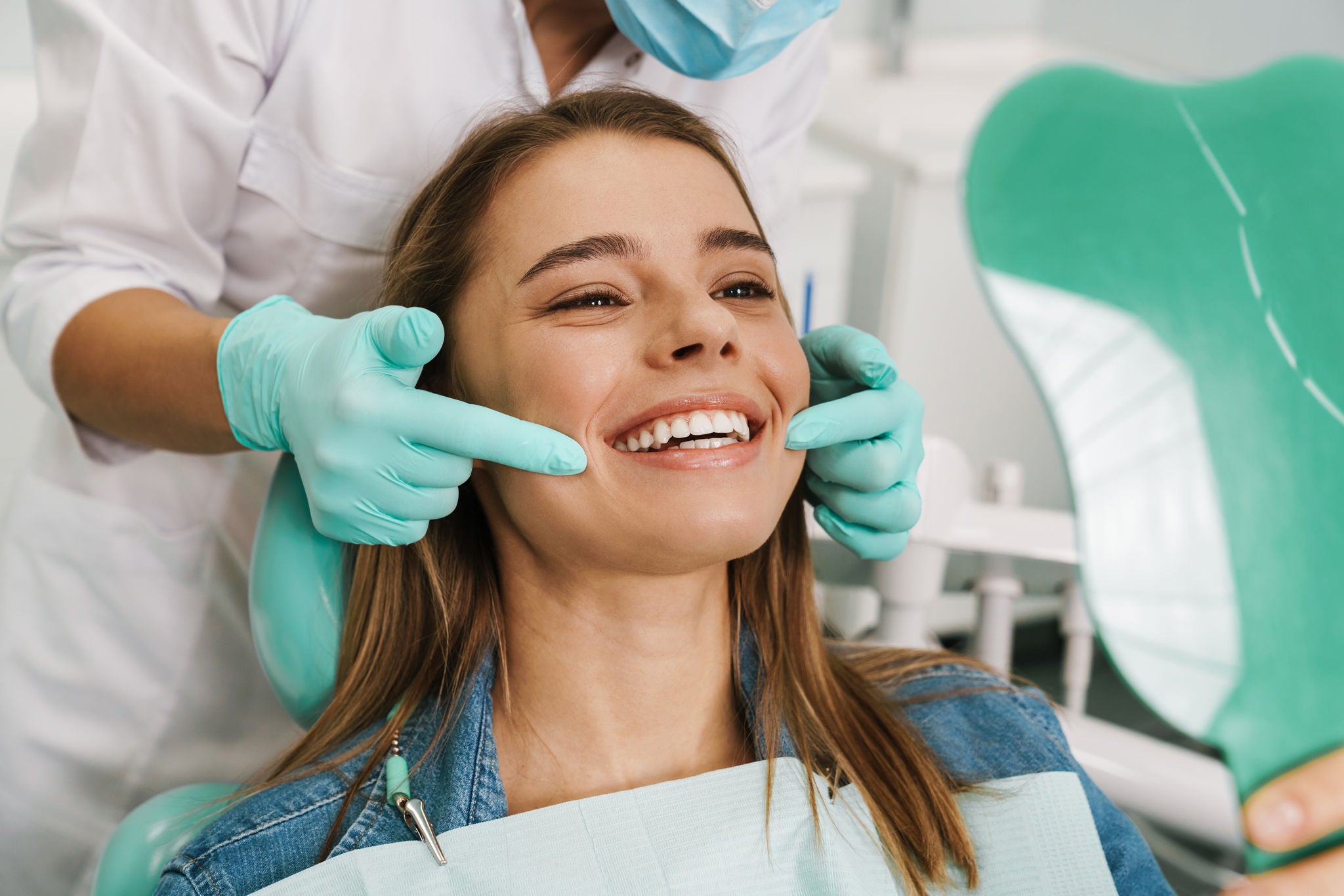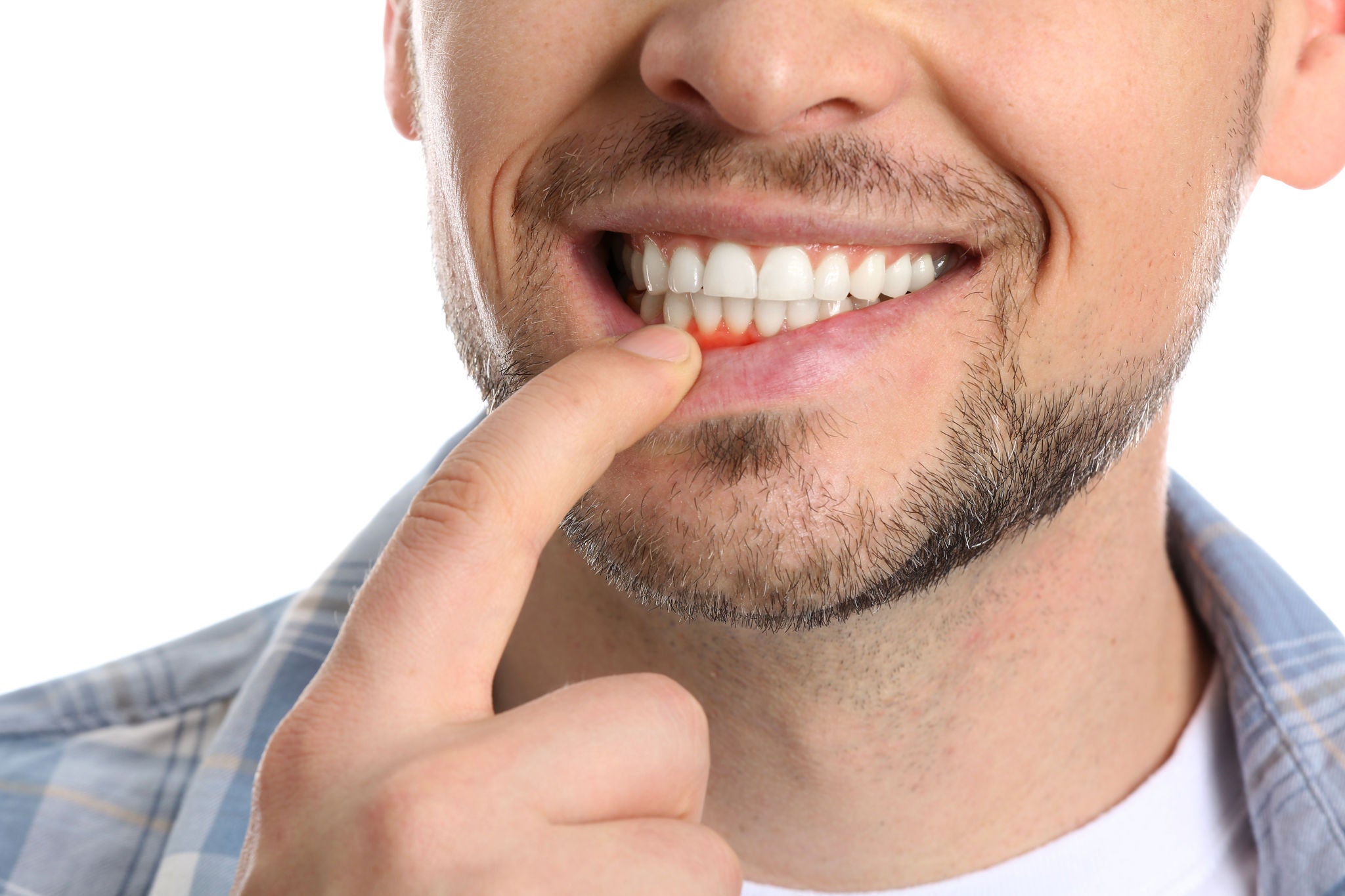
Tips for Maintaining Oral Health During Pregnancy
Pregnancy can be a joyful and exciting experience as well as a time fraught with worry and concern. While we can’t alleviate all of your worries, we can at least offer guidance on how to maintain good oral health during pregnancy.

We’ll discuss the most urgent pregnancy-related oral health issues, address top questions about pregnancy-safe oral care, and offer tips to help you maintain good oral health during pregnancy.
The Impact of Pregnancy on Oral Health
Certain changes in the pregnant body such as fluctuations in hormone levels and changes to the immune system can increase your risk of developing serious oral health complications like gum disease.
Here is an overview of a few conditions that can impact oral health during pregnancy.
Gingivitis
The gums can react to even a small amount of dental plaque during pregnancy. Even if you had healthy gums before pregnancy and maintained excellent oral hygiene, it's still possible to develop gingivitis with minimal dental plaque accumulation.
Signs that you may have pregnancy-induced gingivitis include red, swollen gums, bleeding, and increased sensitivity.
Gingivitis can be addressed through strong home oral care habits. Schedule a visit with your dental care provider if you notice it isn’t improving, since untreated gingivitis can develop into the much more serious disease of periodontitis.
Morning sickness
Morning sickness is a misnomer since this condition can strike at any time of day, causing nausea and vomiting. Repeated exposure to strong stomach acids can cause damage to your teeth, placing you at risk for tooth erosion. For those who suffer from morning sickness-related vomiting, it is advised to rinse your mouth with water immediately after to wash away the bulk of the acid. You should not brush your teeth until 30 minutes have passed to allow your tooth enamel to recover from the acid.
Finding the right treatment for morning sickness is often very individualized and can be done with the help of a primary care doctor.
Gestational diabetes
Some people develop diabetes during pregnancy, known as gestational diabetes. Since there is a bi-directional link between diabetes and gum disease, it is important to practice strict home oral care if you are diagnosed with gestational diabetes.
Your primary care doctor will be able to guide you through navigating health concerns related to gestational diabetes.
It's safe to continue seeing your dentist during pregnancy. In fact, it's recommended as a key step in maintaining good oral health during pregnancy, as oral health can affect your overall health and your baby's health as well. Research also shows treatment of gum diseases is safe and effective during pregnancy.
Yes! It's important to inform your dentist about your pregnancy and any medications or treatments you're receiving so they can make informed decisions about your dental treatment plan.
It is safe to use oral care products that contain typical amounts of fluoride (1000 to 1500 parts per million (ppm)) during pregnancy. This is the quantity of fluoride found in most over-the-counter products that are recommended for daily dental care.
However, it's recommended to avoid products with high levels of fluoride (1.1% or 5000 ppm) as excessive intake of fluoride during pregnancy can cause dental fluorosis in the developing baby's teeth. This condition can cause white streaks or spots on the teeth, or in more severe cases, pitting of the tooth enamel.
The severity of dental fluorosis depends on the amount of fluoride exposure, the age of the individual at the time of exposure, and the duration of exposure. Severe cases may lead to weakened tooth enamel and increased susceptibility to tooth decay.
When in doubt, consult with your dentist to confirm which products are safe to use during pregnancy.
Yes, you can use mouthwash during pregnancy, but it's recommended to choose an alcohol-free option. A mouth rinse is a good option for those suffering from morning sickness, as the rinse can aid in enamel repair.
If your oral health was excellent prior to pregnancy, odds are in your favor that you can maintain that good health with thoughtful care. If you previously struggled with oral health, now is the optimal time to adopt a more effective oral care routine.
1. Spend two minutes brushing your teeth, dividing your time equally between the top and bottom teeth.
2. After rinsing with water, clean between all of your teeth. If you have tight teeth, use floss. If you prefer, you can use an interdental brush or pick, moving from left to right and starting with the top teeth before moving to the bottom.
3. Use an anti-plaque mouthwash to rinse your mouth for 30 seconds, making sure to rinse thoroughly.
You’ve got this!
Now you’re armed with the information you need to confidently take care of your teeth, your whole body health, and the health of your developing baby.
With proper oral care, you can enjoy a happy, healthy pregnancy and safeguard your dental health for years to come.
Learn more about how to choose the best oral care products for your health.
You’ve got this!
Now you’re armed with the information you need to confidently take care of your teeth, your whole body health, and the health of your developing baby.
With proper oral care, you can enjoy a happy, healthy pregnancy and safeguard your dental health for years to come.
Learn more about how to choose the best oral care products for your health.















